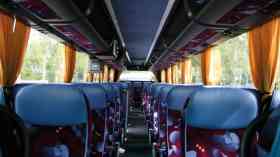
Rolling out new special free schools
Over 1,600 new special free school places are to be created across England, and 19 local authorities are inviting applications from organisations to run them. Education Business reports on the proposed schools
On 12 April 2017, the Department for Education (DfE) announced the approval of 131 new free schools, which included the approval of plans to launch a special free school competition across 19 local authorities which would allow sponsors to apply to launch the new schools.
It will mean 19 new schools across Bedford, Blackpool, Bradford, Cheshire East, Croydon, Doncaster, Enfield, Essex, Hampshire, Havering, Herefordshire, Hounslow, Manchester, Portsmouth, Redbridge, Sheffield, South Gloucestershire, Suffolk, and Sunderland.
The aim is to provide high-quality provision for children with special educational needs and disabilities, and the schools will be built through the government’s free schools programme.
Organisations such as Multi‑Academy Trusts to specialist charitable organisations are being called to apply to one of the 19 local authorities, setting out how they will be able to meet the specification for the project.
Criteria has been set out by the local authorities, in conjunction with the DfE, to ensure that they meet the needs of each local community and provide much-needed places for Special Educational Needs and Disability (SEND) pupils.
The new schools are part of a recent wave of free schools that were previously approved, and is separate from government plans to open 30 free schools in partnership with local authorities.
Schools system minister, Lord Nash, said in a statement: “Free schools are providing many good new school places in response to the needs of communities across the country.
This process will give local authorities the chance to identify expert organisations with proven track records in SEND provision to run special schools that will help hundreds of children fulfil their potential.“
The closing date for bids is midday, 24 November 2017. After this, the successful sponsors will be chosen.
BEDFORD
Bedford’s local authority has set out specifications for a 200-place school with both early years and post-16 places for pupils between the ages of three and 19.
According to the Borough of Bedford, there has been a predicted rise in the demand for SEND school places due
to the Children and Families act in 2014.
As a result, the council aim to provide a multi-agency package of support in a “wraparound service to maintain the opportunity for children and students to live at home and access education locally within the borough”.
At the moment, the council are not able to place all new students in its two designated special schools and, as a result, have had to consider provision elsewhere.
The proposed school would create a sustainable provision that will help to support the most vulnerable pupils. The new school building will be funded through EFA capital funding.
HAMPSHIRE
Hampshire County Council has outlined the need for a new 125-place school for pupils between the ages of four and 16 with social communication needs and Autism spectrum disorder.
The council has already identified the location for the new school at the former site of Chineham Park Primary School in Basingstoke.
The free school is aiming to be opened in September 2020, providing necessary approvals are met.
At the moment, feasibility work and an outline design is being undertaken by the council and the successful proposer will work alongside them to ensure that the building is built to the required standard and meets the need of the “modern curriculum”.
DONCASTER
Doncaster has released details for a 100‑place school with post-16 provision for pupils between the ages of five and 19 with complex communication and interaction needs, Autism Spectrum Disorder (ASD) and other social and mental health needs.
The school will primarily be for children and young people with Autism, specifically high‑functioning ASD and Aspergers.
Working with the DfE, the school is expected to be on the Hungerhill Enterprise Park site and would have 80 places filled by the council, with the remaining 20 offered to neighbouring authorities.
In addition, the school will be closely associated with another secondary school to allow pupils to have access to the mainstream curriculum where it is possible.
Cllr Nuala Fennelly, cabinet member for children, young people and schools, commented: “We are delighted to have
the opportunity to provide our young people and those across South Yorkshire, who have special educational needs and disabilities with the kind of education and support they deserve.
“We have worked with the Department for Education to develop the specifications that must be met by potential operators when applying to run the school. It is vital that these specifications address the need for additional SEND provision in Doncaster, which is why they have been so carefully put together.”
CROYDON
A 150-place school for early years and post-16 provision has been outlined by Croydon Council. It will be for pupils aged between two and 19 with ASD.
The school is expected to be based in New Addington, of which capital funding for the construction of the new build has been confirmed by the DfE.
The facility will be the latest in a series of brand new schools to be built by Croydon in recent years as part of what has been the largest school expansion programme in the UK.
The borough also has the largest youth population of any London borough, and since 2010 has seen the number of young people with special educational needs for whom the borough maintains an education, health and care plan increase from 1,800 to 2,500.
This has made it a priority for the council to invest in more local places to ensure young people with SEN have an effective education pathway to support them in making progress, achieving independence, and gaining employment.
Cllr Alisa Fleming, cabinet member for children, young people and learning, Croydon Council, said: “We are delighted the DfE have included Croydon in this exciting project and we’re keen to hear from any organisation which has the skills and expertise to deliver the specialist services needed by many young people in the borough.”
Subject to the outcome of consultation on the Croydon local plan it is hoped planning applications for the preferred site could be submitted by the middle of next year.
The scheme will be put together in close liaison with parents and carers through Croydon’s Parent Forum, which is run by voluntary sector organisation Parents in Partnership (PIP).
The borough is looking for a provider with a track record in using an evidence‑based approach to educating children with autism to improve their futures and help get them into employment.
BLACKPOOL
Blackpool Council has outlined its specifications for its new special free school, which is expected to accommodate 48 pupils between the ages of 10 and 16.
Young people attending the new school will have an Education and Health Care plan, which will be subject to review on at least an annual basis.
It will be for pupils who have Social, Emotional and Mental Health (SEMH) problems and will also benefit those limited to speech and language and Autism.
According to the council’s specifications, there is currently no SEMH specialist school in the Blackpool Local Authority area. The Pupil Referral Unit (PRU) in the area is over capacity with a number of pupils remaining in alternative provision for an entire key stage or more.
The site of the new school will provisionally located to the east of Blackpool in the Clifton ward of the borough.
All buildings on the site were demolished in 2013, and therefore is currently vacant. The site is readily available for work to begin.
BRADFORD
Bradford’s proposals for a new special school, subject to planning permission, would see the school build on the former Rhodesway playing fields site on Lower Grange, Bradford. The 72-place school will have a 12-bed residential facility and will be dedicated to people with SEMH needs.
Michael Jameson, strategic director of children’s services, commented: “Getting this funding from central government has involved a lot of work and planning from a number of partners.
“It’s good news for the district that we are able to expand provision for children with special educational needs and disabilities.”
CHESHIRE EAST
The specifications for Cheshire East is for a 40‑place school which will accommodate pupils aged between four and 16 with SEMH needs.
Cheshire East Council have stated that by working with the winning proposer it will reduce the need for children with complex needs to travel too long distances, “often to out of borough independent and non-maintained special schools”.
ENFIELD
The free school competition will see a new 70-place build be developed near Ark John Keats Academy in Enfield.
It will cater for those aged between 11 and 18 with SEMH needs. Twenty of the school places will be provided for 16-19 provision.
It will be constructed on an off-site playing field and a sub-lease for the site will be granted to the Educational and Skills Funding Agency (ESFA).
The council has also stated that “depending on the site secured”, they would “welcome the co-location with other services that would enhance support not only to pupils but to their families as well”.
ESSEX
Essex County Council’s specifications for its new special free school will see it provide 64 places. It is anticipated to be built on the former St Peter’s College site in Chelmsford for pupils with SEMH needs.
The prospective new free school follows the approval of plans for two other new government-funded special free schools in Essex in April.
In addition, up to £85 million, including £42 million from the Essex Schools Forum and up to £43 million of capital funding from the council, has been allocated towards creating more special school places in the county over the next three to five years.
Cllr Ray Gooding, Essex County Council’s cabinet member for education commented: “We already have some excellent special schools in the county, however, more capacity is still needed to reduce the distance children have to travel to school and ensure Essex has the range of expertise needed to meet all pupils’ needs. This new free school will be a big boost to our ambition of creating a strong network of special schools that the county can be proud of and will complement our own investment programme.”
Meanwhile, Havering London Borough plan to create a special school for 60 children with Communication and Interaction Needs (C&I), as well as SEMH needs. The school will be for pupils aged between three and 16.
HEREFORDSHIRE
Herefordshire Council will be working with the DfE to provide a new special free school for 16 to 19-year-olds with severe and complex learning disabilities, including Autism. It will provide places for 50 people on the proposed site, which is adjacent to Hereford Sixth Form College.
It aims to provide a community facility outside of school hours; enable internships and work experience; support students in other educational facilities, including mainstream schools, colleges and training providers; and provide a resource hub for staff working with SEN children and families.
HOUNSLOW
The London Borough of Hounslow has stated that its specifications for a special free school will see the
development of a 70-place school for secondary school ages. Fifty of those places will be specifically for those aged between 11 and 16 and the remaining 20 will go to 16 to 19-year-olds.
The new school development will be located on Hanworth Road, Hounslow, on a site already owned by EFSA.
It will have a social emotional and mental health area of expertise.
MANCHESTER
Manchester City Council is seeking a sponsor for a 100-place special free school, which would include places for pupils with Profound and Multiple Learning Difficulties (PMLD), Severe Learning Difficulties (SLD) and ASD.
Ninety of the school places will be commissioned by Manchester City Council and the remaining 10 will be commissioned by Salford City Council.
The development will be aimed at three to 11-year-olds.
It is expected to provide access to specialist facilities such as sensory rooms, soft play areas to children with SEND who attend local mainstream primary schools and resourced provision on a sessional basis during school hours.
PORTSMOUTH
The development of a 40-place school, offering eight places for junior aged pupils, 24 for secondary pupils and eight places for post-16 students, has been outlined in Portsmouth City Council’s special free school specifications.
The new special school academy will cater for children with Autism, social communication difficulties and associated challenging behaviour and sensory needs.
It is scheduled to open in September 2020 and work on plans for the building has started, with initial building due to start in 2018.
The academy will be a stand-alone school, co-located with Redwood Park academy on their school site.
REDBRIDGE
The London Borough of Redbridge is seeking a sponsor for a 64-place school for pupils aged between two and seven.
It aims to support pupils with special educational needs such as: SEMH; Speech, Language and Communication Needs (SCLN); and cognition, learning, communication and interaction difficulties.
The school will focus on planning moving pupils to a mainstream school at the age of seven and will provide opportunities to explore early intervention places for Early Years Children.
SHEFFIELD
Sheffield City Council’s development will consist of 40 to 60 places for pupils with SEMH needs and Autism.
It will be aimed at ages seven and 16 and may provide up to four to six residential places following consultation with the chosen sponsor for the special free school.
The aim is for this new school to improve the diversity and quality of the local offer and meet a gap in the current provision.
More than 30 Sheffield children aged 7-25 with ASD/SEMH needs attend high cost independent placements as no direct alternatives exist. It is expected that this new school will reduce demand for these placements.
The school will also help give parents more choice and give young people opportunities to pursue
qualifications in line with their academic potential.
SOUTH GLOUCESTERSHIRE
The special free school development in South Gloucestershire will be aimed at young people with SLD and Profound and PMLD.
It will provide schooling for up to 112 pupils, from nursery-age to post-16 education, and is expected to open as early as 2019.
Over the next few months, bidders are invited to submit proposals to meet the criteria set out by the Department for Education. Those plans will then be jointly assessed by the council and the Department for Education and the preferred option will be passed to the Secretary of State for Education for approval.
SUFFOLK & SUNDERLAND
A 60-place school has been outlined for the Suffolk area, aimed at pupils with SEMH needs and Autism. The build is expected to be located in Ipswich.
Sunderland City Council has set out specifications for 96 additional autism school places for those aged between five and 16. This complements the seven special schools currently operating in the city.
The former Bishop Harland CE VA Primary School site in North Sunderland has been identified as the sire for the new school.
Further Information:Latest News
30/10/2025 - 01:28
In the wake of the Raac crisis, the DfE spent £5 million on research into the condition of school buildings, which is due to conclude in spring 2026.
30/10/2025 - 01:09
Malmesbury Primary School in Wiltshire has submitted plans for a major expansion, funded by entrepreneur James Dyson.
30/10/2025 - 00:55
Monday's Every Pair Tells a Story campaign to protest to highlight the national crisis in SEND provision.
29/10/2025 - 09:19
Estimated data from the Department for Education reveals that 470,000 pupils under 16s use local authority funded transport to get to school.
28/10/2025 - 09:29
Timeline set for removal of Reinforced Autoclaved Aerated Concrete







